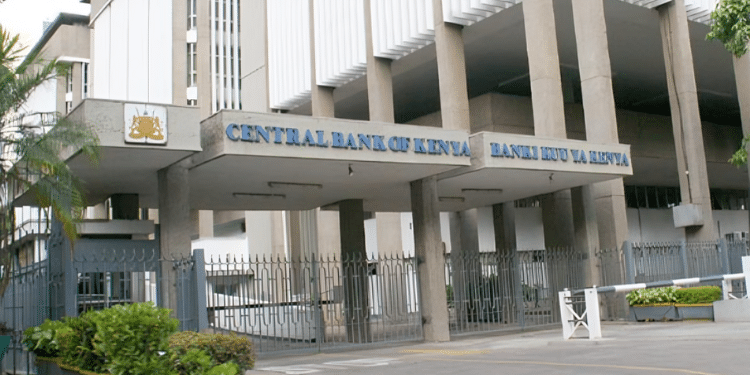The Supreme Court of Kenya has overturned the Court of Appeal’s ruling that declared the Finance Act 2023 unconstitutional.
In their ruling, the seven judges of the apex court, led by Chief Justice Martha Koome stated that the Finance Act 2023 is constitutional.
“The preliminary objection on this Court’s jurisdiction is overruled. We hereby set aside the Court of Appeal’s finding declaring the entire Finance Act, 2023 unconstitutional,” read the ruling in part.
The judges upheld Court of Appeal’s decision that the question relating to Section 84 (Affordable Housing Levy) introduced by the Finance Act, 2023 before the Court of Appeal was moot.
They also concurred with the Appellant court that Sections 76 and 78 of the Act amending Section 7 of the Kenya Roads Act, 1999; Section 87 of the Act amending Section 28 of the Unclaimed Financial Assets Act, 2011 are unconstitutional as they were neither incidental to nor directly connected to a money Bill.
“The Consideration of the Finance Bill (National Assembly Bill No. 14 of 2023)’ met the threshold of a reasonable measure for considering proposals, views and suggestions from the public, with respect to the public participation exercise conducted on the Finance Bill, 2023. m),” the Apex court ruled.
“In line with Article 221 (6) of the Constitution, Estimates of Revenue are not a component of the Appropriations Act. The preparation and tabling of the estimates of revenue and expenditure precede the preparation and tabling of the Appropriation Bill. The Estimates of Revenue and expenditure for the FY 2023/2024 were tabled and considered before the National Assembly as required by law.”

Supreme Court Rules Finance Act 2023 Constitutional
The seven Judges also maintained that estimates of Revenue and expenditure for the FY 2023/2024 were tabled and considered before the National Assembly as required by law. They also ruled that public participation was lawfully conducted and Parliament is not required to undertake fresh public participation.
“Bearing in mind the time-sensitive nature of a Finance Bill, it is unreasonable to require, or subject amendments intended to give effect to proposals and suggestions from a public participation exercise to another fresh round of public participation,” the Apex court said in its ruling.
This means that the Finance Act 2023 remains in effect and allow the government to continue revenue collection and fiscal operations under the Act’s legislative framework.
Also Read: Affordable Housing: High Court Rules on Housing Levy
The Act therefore remains in force, and all taxes collected under this Act are valid.
This decision follows an appeal filed by the government, including the Attorney General (AG), the Cabinet Secretary for Treasury, the National Assembly, and the Kenya Revenue Authority (KRA), against the Court of Appeal’s judgment declaring the Finance Act 2023 unconstitutional.
The Appellants raised various grounds of appeal including the argument that the Finance Bill, 2023, was correctly categorized as a money Bill, and therefore did not necessitate Senate involvement as per the Constitution.
They further defended the adequacy of public participation, stating that the National Assembly had sufficiently conducted the participatory process.
Supreme Court Issues Conservatory Orders
On August 20, 2024, the Supreme Court issued a stay of execution suspending the orders of the Court of Appeal pending the hearing and determination of the substantive appeal by the apex court.
One ground advanced in support of the stay Applications was that the Court of Appeal misinterpreted the procedure for enacting a Money Bill as outlined in Article 114 of the Constitution and the Public Finance Management Act, 2012.
It was also urged that the Court of Appeal decision also contradicted the Court’s earlier position on requirements for public participation.
Furthermore, it was contended that the decision compelled the government to rely on the Finance Act, 2022 for revenue collection, due to the withdrawal of the Finance Bill, of 2024.
In its ruling, the Supreme Court acknowledged that the Court of Appeal’s decision could severely disrupt government operations, the government having argued that nullifying the Act would cause an immediate revenue shortfall of Ksh214 billion.
The Apex court stated that this nullification will harm public services, threaten economic stability, and possibly trigger a Constitutional crisis.
The Court indicated that issues such as the role and scope of public participation in the legislative process, the criteria for declaring a statute unconstitutional, and whether Parliament can amend Bills after public participation were all arguable points deserving of the Supreme Court’s consideration.
Also Read: Fresh Hurdle as Court Issues Orders on Ksh95 Billion KETRACO-Adani Project
Court of Appeal Rules Finance Act Unconstitutional
The High Court by a Judgment delivered on 28th November 2023 initially declared some provisions of the Act unconstitutional, but the entire Act remained largely intact.
Consequently, the High Court’s Judgment provoked six (6) appeals and three (3) cross-appeals at the Court of Appeal in the National Assembly & Another vs. Okiya Omtatah Okoiti & 55 Others.
However, upon hearing the matter, the Court of Appeal in its Judgment delivered on 31st July 2024 declared the entire Act unconstitutional due to non-adherence to prescribed legislative procedures.
One ground was that there was lack of public participation in connection with the sections of the Act that were introduced post the initial public participation.
Additionally, the court ruled that the National Assembly did not provide reasons for either adopting or rejecting public proposals received during the public participation process for the Finance Bill, 2023.
The Appellate court also justified that the Appropriation Act, 2023 did not include estimates of revenue approved by Parliament before the enactment of the Act.
This decision prompted the National Treasury, the Attorney General, and other government entities to file the three (3) consolidated Appeals in the Supreme Court, seeking Conservatory and/or stay Orders of the Court of Appeal’s Judgment.
Follow our WhatsApp Channel and join our WhatsApp Group for real-time news updates.










































































